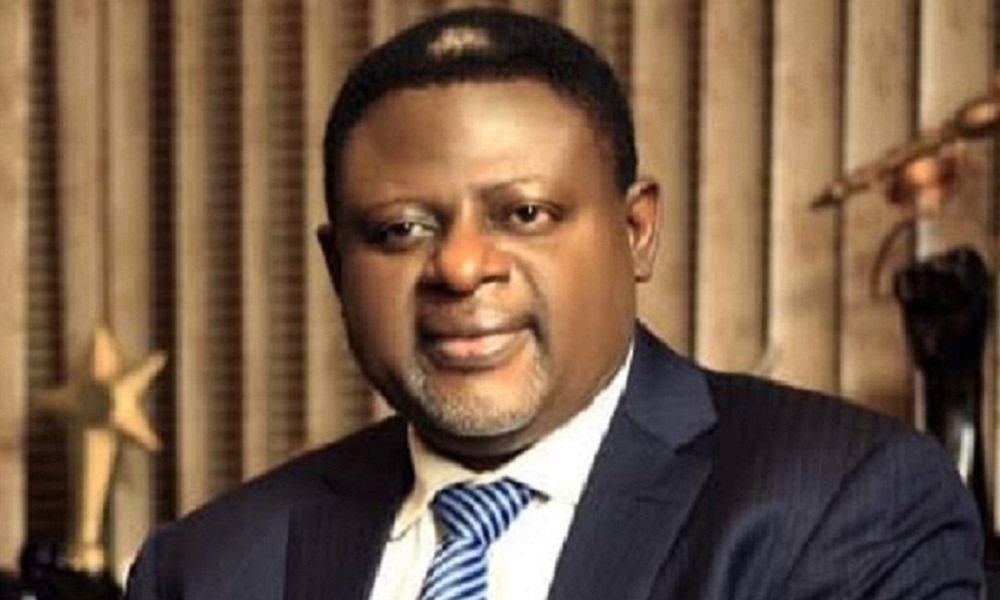News
Despite LG autonomy, Nigerian governor spends millions on vehicles for council officials

Governor Bassey Otu of Cross River State has spent millions of naira to purchase brand new SUVs for chairpersons and vice-chairpersons of the state’s local government councils despite the July 2024 Supreme Court judgement affirming the financial autonomy of Nigeria’s 774 local governments.
On 13 November, Mr Otu, represented by the Deputy Governor of Cross River, Peter Odey, presented Coolray SUVs to 18 vice-chairpersons at the Government House Calabar.
Mr Odey was assisted by the Governor’s Chief of Staff, Emmanuel Ironbar.
A spokesperson to Governor Otu, Nsa Gill, in a press statement on 14 November, said the SUVs were meant to enhance productivity and efficiency at the local councils.
The statement said the Vice-Chairperson of the Obubra Local Government Council, Leonard Ogwa, who spoke on behalf of his colleagues, “expressed gratitude” to Mr Otu for the vehicles.
Mr Ogwa said the vehicles would “enhance the smooth and efficient operation of their offices”.
The statement quoted Mr Ogwa as assuring them they would work alongside their council chairpersons to “build on the governor’s achievements.”
Cost of SUVs
According to information available on the Internet, the retail price for a Coolray SUV is between N14,700,000 (Coolray SUV – Dynamic Plus), N13,900,000 (Coolray SUV – Dynamic) and N16,900,000 (Coolray SUV – Sport Plus).
At a unit price of N16,900,000, 18 Coolray SUV—Sport Plus would cost N304,200,000, but the Cross River State Government must have spent much more than that if that is the exact brand it bought for the officials. This is because of the characteristic opaque nature of government procurement processes in Nigeria, which makes them susceptible to prices of goods and services being inflated.
According to the statement, Governor Otu had earlier presented Ford SUVs to the chairpersons of the 18 local councils.
The governor may have spent at least a billion naira to purchase the vehicles for the council chairpersons and vice-chairpersons.
Where did the money come from?
PREMIUM TIMES asked Mr Otu’s spokesperson why the governor should give out vehicles to officials of local councils when the councils are expected to enjoy financial autonomy.
“The autonomy is still there, and the governor abides by the judgement of the Supreme Court, but you also know that even the (Nigerian) constitution also gives power to the House of Assembly to make laws for the administration of the local governments,” Mr Gill responded.
He said the governor’s giving out vehicles to the officials of the local councils does not diminish the regional government’s autonomy.
PREMIUM TIMES also asked Mr Gill where the money for purchasing the vehicles came from.
“You know, for sometimes, there was a joint account (between the state government and the local councils) operation, and there were some reserve funds, so to say, in the joint account.
“I can’t say that the fund came from there, but I know they may have come from there as well,” he responded.
Mr Gill, however, said Governor Otu will not operate the joint account.
He said there is some kind of partnership between the local and state governments to develop Cross River.
Our reporter asked Mr Gill about the possibility that vehicles for local officials may not have been a priority need of the councils.
“First, the chief executives of the councils need to be mobile. The departments in the councils will also need vehicles. And those vehicles (needed by the departments) will be bought directly by the councils,” he responded.
Background
Before the landmark Supreme Court judgement, local councils and their officials existed at the mercy of the governors of their respective states.
Many governors deliberately refused to conduct local elections for several years. They were comfortable appointing their allies to run the affairs of the councils and dictating to them how to use the councils’ funds.
In some cases, the governor arbitrarily dissolved the leadership of some councils and handpicked a new set of officials.
With the Supreme Court judgement, the joint account has been abolished. The Accountant General of the Federation has been mandated to pay funds that belong to the local government directly into a council’s bank account.
The Supreme Court also declared setting up a caretaker committee to run local councils illegal.
News
Deputy Speaker Leads Defection of PDP Stalwart Chris Igwe, 13,000 Followers to APC In Abia

News
Speaker Abbas Raises Alarm on Workplace Safety in Nigeria

…as labour minister call for stricter laws to protect workers
By Gloria Ikibah
Speaker of the House of Representatives, Rep. Abbas Tajudeen, has expressed serious concern over the state of workplace safety in Nigeria, calling for urgent legislative action to prevent further injuries and fatalities.
Speaker Abbas made the call during the 2025 World Day for Safety Conference, with the theme: “The Legislative Perspective: Safety First – Building a Safer Future for All Nigerians”, organised by the House Committee on Safety Standards and Regulations at the National Assembly complex on Tuesday.
The Speaker who was represented by Ondo lawmaker, Rep. Oluwatimehin Adelegbe, said that the occasion was a reminder of the need to protect Nigerian workers from occupational hazards.
He said: “Today’s event is very significant, especially in the lives of workers across the globe. It reminds us of the need to guarantee the safety of workers against occupational hazards and fatalities.
“In societies where life is not given the right premium, workers are exposed to various accidents and dangers. Every worker has a right to be protected.”
Speaker Abbas acknowledged the global importance of the World Day for Safety, which was launched in 2003 by the International Labour Organization (ILO), and shared alarming statistics. “About 2.3 million workers lose their lives every year from workplace injuries and health hazards, with about 160 million non-fatal injuries,” he noted.
Abbas lamented the lack of reliable data In Nigeria, and said the most recent figures—238 deaths and 3,461 injuries in the construction industry—date back to between 2014 and 2016. “Even those reports are incomplete,” he added.
He also cited a study at the Federal Medical Centre in Asaba, which found that 52.7 percent of health workers surveyed had experienced needle pricks, while 53.3 percent reported incidents of blood splashes, and linked this to greater risks during outbreaks like Ebola and COVID-19, recalling the sacrifices of Dr. Ameyo Adadevoh and Nurse Justina Ejelonu, who died after coming in contact with the index Ebola case in 2014.
The Speaker blamed many of the injuries in construction sites and criticised the neglect of safety in public buildings.
“Unsafe acts and unsafe working conditions, including lack of personal protective equipment (PPE), hoisting gear, appropriate scaffolds and ladder protection.
“Most public buildings and workplaces in Nigeria are design-built and opened for use without safety checks. Apart from fire extinguishers, you hardly see buildings marked with reflective signs that guide workers in emergencies”, he lamented.
Abbas promised that the House would review and streamline existing laws to improve enforcement and public health protections.
“As the law-making body, the House of Representatives is poised to cause the necessary review of existing laws and seek ways to make them more effective in safeguarding public health and safety”, he added.
The Chairman Committee on Safety Standards and Regulations, Rep. David Idris Zacharias in his welcome address said the event marked a historic moment in our nation’s journey towards building a safer, more resilient society.
He stressed that safety must be prioritized, embedded in every policy, and included in every planning phase of our national projects. Whether it’s construction, road, workplace, environmental, or food safety, these are not peripheral issues—they are central to our well-being.
According to Zacharias, the committee’s mission is not only to pass laws but to ensure they are implemented effectively.
He acknowledged that enforcement gaps, poor awareness, and weak appreciation of safety still plague the country. However, he added, and that these challenges present us with immense opportunities to innovate, collaborate, and learn from others.
The committee chairman therefore called for partnerships with businesses, labour unions, NGOs, and the public.
He promised stronger enforcement, increased funding, more monitoring, and public awareness campaigns.
“Safety must be everyone’s concern. From the smallest corner shop to the largest industrial complex, we all have a role to play. We envision a future where safety is embedded in every organisation’s culture, every construction project, and every government policy,” he said.
The Minister of Labour and Employment, Dr. Muhammadu Maigari Dingyadi, in his message called for stronger legislation and cooperation among stakeholders to build a safer work environment for all Nigerians.
He also emphasised that while innovation is necessary, it must not come at the cost of workers’ welfare.
He said: “The theme of today’s conference, The Legislative Perspective: Building a Safer Future for All Nigerians, highlights the critical role of legislation in helping to shape a resilient and future-ready occupational safety and health framework.
“Legislation is central to navigating the digital frontier responsibly; ensuring that innovation does not erode the foundational rights, dignity, and welfare of the Nigerian worker.
“The safety of our workers must be anchored on secure technologies, sound data protection, and inclusive policy frameworks that uphold international labour standards”.
Dr. Dingyadi also stressed the importance of collaboration through the tripartite model involving government, employers, and workers’ organizations, to ensure policies are both enforceable and inclusive.
He further acknowledged delays in reviewing labour laws but said progress had been made, and called for unity across all sectors to build a lasting culture of safety.
“Year 2024 marked significant progress with the publication of Nigeria’s revised OSH Country Profile and the Federal Executive Council’s approval of landmark OSH regulations such as the Construction Safety Regulations 2024”, he added.
The Minister also spoke about the Occupational Safety and Health (OSH) Bill, which he said was developed through wide consultations.
“The Ministry has led the development of the Occupational Safety and Health Bill, which has been crafted through our distinctive Tripartite Plus framework. We count on the continued partnership of all stakeholders to make this a reality.
“Together, let us rise to the challenge of building a resilient safety culture, underpinned by innovation, inclusivity, and a shared commitment to protecting the lives of all Nigerian workers”, Dingyadi stated.
News
NEMA receives 203 stranded Nigerians deported from Libya

The National Emergency Management Agency (NEMA) on Monday received 203 stranded Nigerians repatriated from Libya at the Murtala Muhammed International Airport, Lagos.
The returnees—comprising 50 men, 96 women, 29 children, and 28 infants—arrived via an Al Buraq chartered flight. Assisted by the International Organisation for Migration and other agencies, the group included two medical cases taken to hospital, while others were relocated to Igando IDP resettlement centre for reintegration.
-

 News13 hours ago
News13 hours agoCourt dismisses Emefiele’s bid to reclaim forfeited 753 duplex estate
-

 News4 hours ago
News4 hours agoJust in: Popular Nigerian billionaire, E-Money nabbed by EFCC
-

 Opinion9 hours ago
Opinion9 hours agoTHOUGHTS ON CONSTITUENTS DEVELOPMENT IN OBIO-AKPOR
-

 Metro13 hours ago
Metro13 hours agoWanted CBEX promoter surrenders to EFCC
-

 News5 hours ago
News5 hours agoKing Sunny Ade’s family opens up over his whereabouts after daughter’s alarm
-

 Politics13 hours ago
Politics13 hours agoPDP Calls Emergency Session as Top Members Flee to APC
-

 News5 hours ago
News5 hours agoEx-DIG,Olofu debunks online newspaper report, says ” I retired from NPF meritously after 35yrs service
-

 Entertainment14 hours ago
Entertainment14 hours agoCubana Chief Priest responds following reports of being denied entry at Headies Awards
















